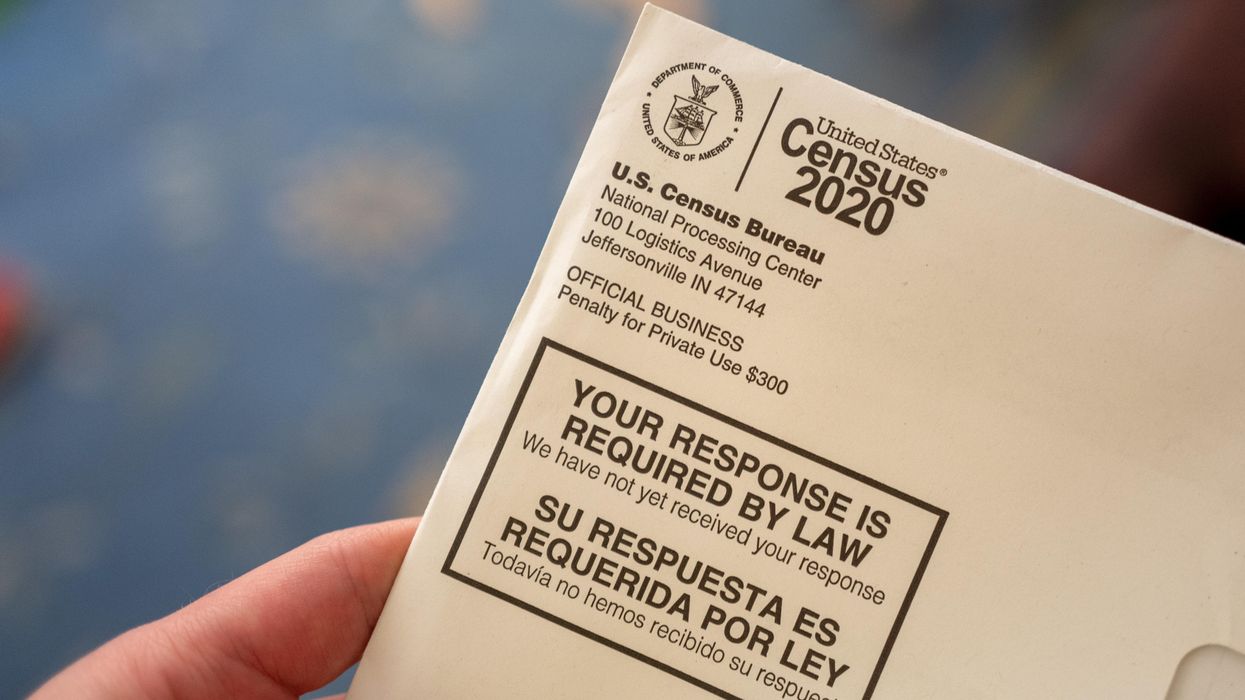On Census Day 2020, April 1, two Americans from the three-member Expedition 62 crew—NASA Flight Engineers Jessica Meir and Andrew Morgan—aboard the spacecraft were counted in the 2020 Census for congressional apportionment.
On the same Census Day, I, then a resident of Delaware, was unexpectedly "stranded” in Rijeka, Croatia, due to the COVID-19 pandemic. As a result, I was not counted in the 2020 Census.
So, what's the catch? The 2020 Census Residence Criteria states that U.S. citizens living abroad who are not federal government employees, along with their dependents, were generally excluded from the 2020 Census count.
The criteria specify that military or civilian employees of the U.S. government stationed overseas, such as these NASA flight engineers, are counted at their U.S. residence, where they primarily live and sleep before leaving the U.S. on or before Census Day. This means they are still considered part of the U.S. population, even though other U.S. citizens living abroad are not. The United States Census Bureau reported that as of April 1, 2020, there were 350,686 military and federal civilian employees, along with their dependents living with them.
Consider this: the roughly nine million civilian American citizens not counted in the 2020 Census make up about 3% of the country's total population. This staggering number is equal to the combined population of Los Angeles, Chicago, Philadelphia, and Tucson.
Today, after five years of The Fulcrum publishing my commentary, 'Stuck abroad, with no good reason why I'm not counted in the census,' I am more determined than ever. I am rolling up my sleeves to urgently draw Congress's attention to the need to include American citizens who live overseas and are not employed by the federal government, such as digital nomads, in the apportionment counts for congressional seats in the 2030 census.
In the current 118th Congress, at least three legislative bills pertain to potential reforms for the 2030 Census.
Sen. Bill Hagerty (R-TN) and Rep. Chuck Edwards (R-NC) have introduced the Equal Representation Act in their respective chambers. Sen. Hagerty introduced the Senate version of the bill (S.2205) on June 29, 2025, while Rep. Edwards reintroduced the House version (H.R. 151) on January 3, 2025. The third bill was recently introduced by Representative Harold Rogers (R-KY).
These bills seem to mirror the provisions of President Trump’s 2020 presidential memorandum, which would exclude undocumented immigrants from the population count used for apportioning congressional seats.
However, these identical bills lack any provision similar to the Full Count Act of 2018 (sponsored by Rep. Rob Bishop (R-UT), which would “require the U.S. Department of Commerce, beginning with the 2030 decennial census, to take appropriate measures to ensure that all Americans residing abroad on the census date are fully and accurately counted, and are properly attributed to their respective states and proper units of local government.”
After the House Committee on Oversight and Government Reform took no action on his bill in 2018, Rep. Bishop appealed to voters, saying, “Currently, the Census Bureau doesn’t count Americans living overseas at the time of the decennial census unless they are affiliated with the federal government. This policy helps states that have lots of residents overseas with the military or other federal government operations, and it hurts those states that have lots of residents who are not affiliated with the federal government.”
In 2004, the U.S. Census Bureau released its report, “Counting Americans Overseas as Part of the Census Would Not Be Feasible,” which claimed that it would be impossible to get an accurate count of civilian Americans worldwide.
According to DemandSage, there are currently 18.1 million American citizens identified as digital nomads, with about 49% of these digital nomads traveling internationally.
After dutifully logging onto the census website from computers on 2020 Census Day, many nomads and I only received the message "Access Denied. You don't have permission to access 2020census.gov on this server." But we had full access to the internet elsewhere.
Do your math! In 2020, the Census Bureau counted 350,686 Americans living abroad, including non-voting children. The Federal Voting Assistance Program (FVAP) mentioned that around 2.8 million votes were cast overseas (including military personnel), and the U.S. Department of State’s Bureau of Consular Affairs reported that approximately nine million U.S. citizens resided overseas. The latter figure is almost eight million higher than the former—another point.
Including Americans living abroad in the 2030 Census might influence the congressional redistricting process.
Look at New York. In the 2022 election, it lost one congressional seat because 89 New Yorkers didn’t complete the census. Had New York counted thousands of New Yorkers overseas, all 27 House seats could have been kept, and the loss of representation might have been avoided.
Switch to Utah. If more than 11,000 Mormon missionaries from Utah living abroad had been included in the 2000 census, Utah would have gained a fourth seat in the House of Representatives. Instead, North Carolina received an extra House seat in 2002, with 18,360 overseas military and federal personnel, whose last known U.S. addresses were on military bases in North Carolina, counted in the census.
Therefore, if Congress wants the Census Bureau to include all citizens living abroad in the 2030 census, new legislation would be necessary to make it a requirement.
Howard Gorrell is an advocate for the deaf, a former Republican Party election statistician, and a longtime congressional aide. He has been advocating against partisan gerrymandering for four decades.





















